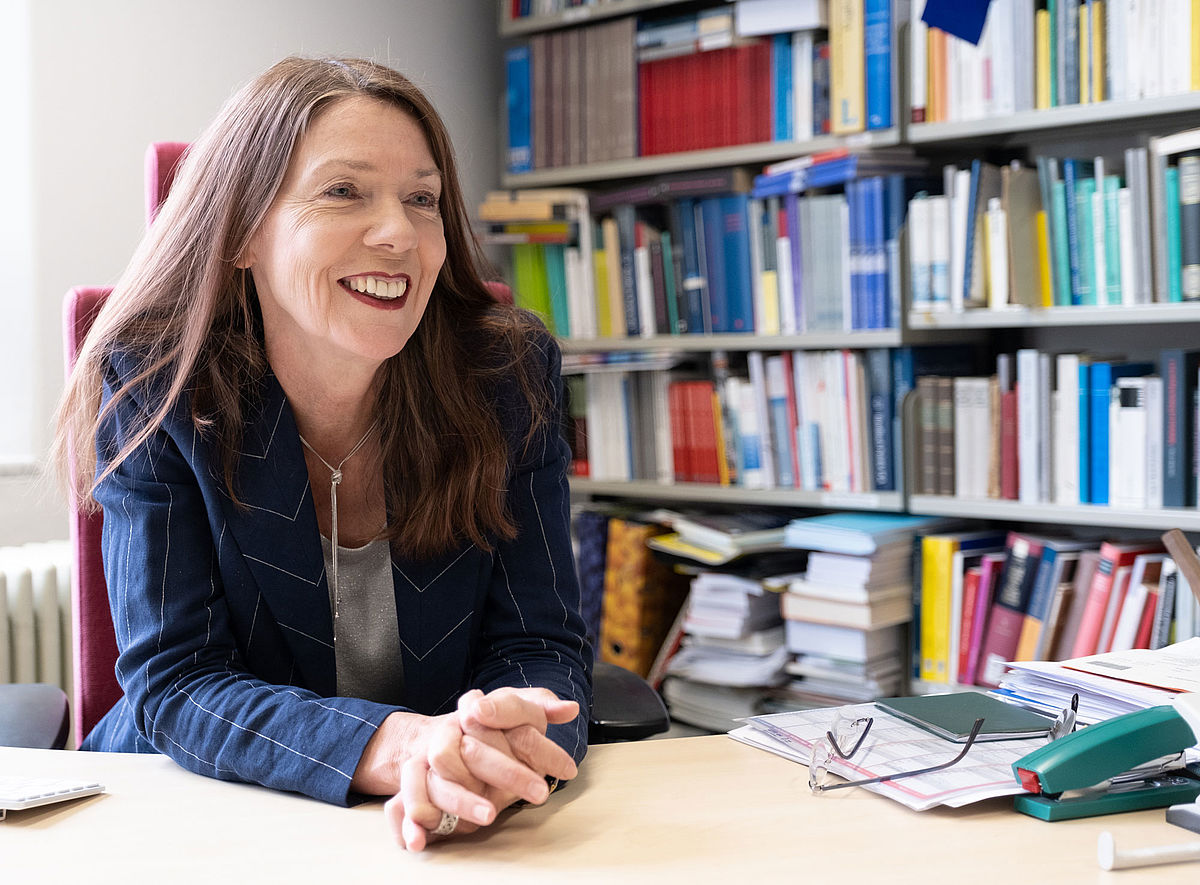Professor Barbara Zehnpfennig is Professor of Political Theory and History of Ideas. She is also a member of the Bavarian Academy of Sciences and researches ancient philosophy as well as totalitarian dictatorships in 20th century Europe. She is currently working on a BMBF research project on the worlds of ideas of politically persecuted and persecutors in the GDR. For the Digital Research Magazin of the University of Passau, Professor Zehnpfennig wrote down some thoughts about the recent electoral results of the AfD.
The reasons for the recent electoral success of the Alternative for Germany (AfD) are undoubtedly manifold. The fact that they are not exclusively of national origin can be seen from the fact that for years there has been an increase in right-wing populist movements and parties in most European states. The decline of social democracy and the rise of right-wing populism in many European countries bear witness to the fact that citizens seem to have other issues on their minds than before.
Concentrated processes of dissociation that trigger fears
If the great theme of the left is social justice (whatever they mean by that), the burning issue of the right is cultural identity (whatever they mean by that). This identity has increasingly come to the fore since globalisation has made national borders increasingly insignificant, migration has confronted citizens with foreign cultures, and the internet has abolished all space-time barriers. Such processes of dissolution of boundaries, especially when they occur in such a concentrated way, trigger fears and create the need to reassure oneself of one's own more strongly and to withdraw from it – as if this could stop the course of things.
Specific German reason: conservative vacuum

Professor Barbara Zehnpfennig, Professor of Political Theory and History of Ideas at the University of Passau.
A specifically German reason why the AfD has recently celebrated such triumphs may be the vacuum that Christian Democracy has created with regard to its conservative clientele. The CDU's course was not fundamentally different from that preferred by the red-green coalition, indeed it was a conscious strategy to conquer the votes of the red-green coalition through an "asymmetric de-mobilisation" and to bring those voters of the CDU who did not agree with the nuclear phase-out or the refugee policy, for example, to abstain from voting for lack of an alternative.
An education of the people instead of neutral reporting
The potential for displeasure was increased by media reporting, most of which also represented this line and rose above its recipients in terms of popular education, not only by providing the news, but also by instructing them how to evaluate it correctly. This included – which then became common usage – taking up the fight "against the right", as if conservative positions were just as illegitimate as right-wing radicals or right-wing extremists. A comparable call for a fight "against leftists" is hardly conceivable, which illustrates the one-sidedness of the perspective.
Taboo of the Nazi past destroyed with relish
The above situation has undoubtedly been of great benefit to the emergence of a party that describes itself as an alternative to the "old parties" perceived as a unified bloc, even if there may be other reasons for its strengthening. In any case, the AfD has succeeded in stylising itself into the voice of all those who do not see themselves represented by the other parties. And it has destroyed with relish the taboo that, due to Germany's past, had hitherto been above the confession of the nation, by not only mobilising legitimate patriotic feelings, but also striking nationalist and racist tones. It made virtuoso use of the internet, the medium in which one can unscrupulously show off one's lowest instincts. By transferring hatred from the internet to the political stage, it has contributed towards a brutalisation of the political debate that now threatens freedom of expression.
Aftermath of radical dichotomies from the GDR
With its strategies, the AfD is increasingly successful in the western German states, but especially in the eastern German states. What could be the decisive factor here? Those who were socialised as citizens of the GDR have learned to think in radical dichotomies. There is only good (communism) and evil (capitalism), there is nothing in between. The pluralistic keeping open of the question of truth, the deliberative handling of political issues, the tolerance towards other positions could not be practised in the GDR. Such mental imprints are deep-seated. The split consciousness typical of many GDR citizens, on the one hand being infected by ideologically motivated black-and-white thinking and on the other hand not believing the official statements at all, also continues to have an effect. A deep mistrust of all forms of established power and also of the organs of publication (the press of lies!) survived the downfall of the GDR.
In addition, there was one party, the Left, which constantly tried to keep alive the old opposition between East and West, even after reunification, and which fed East German pride, offended by some Western arrogance but also by economic inferiority, by proclaiming an "East German" special consciousness.
The strong political polarisation, the uncompromising nature of the conflict, the total opposition to the "powerful" – these patterns serve the AfD better than the others and at the same time pretend to give a voice to the neglected and disenfranchised.
Professor Barbara Zehnpfennig, Universität Passau
The AfD was able to build on all these structures. It is now behaving like the new "East German" party after the Left Party has been marginalised. The fact that the left – alongside the AfD – was able to become so strong in Thuringia can be explained against the trend and probably by the pragmatic, patriarchal action of its top candidate Bodo Ramelow. The strong political polarisation, the uncompromising nature of the conflict, the total opposition to the "powerful" – these patterns serve the AfD better than the others and at the same time pretend to give a voice to the neglected and disenfranchised.
Decisive factor in democracy
Will it be successful in the long run? That depends on whether the other parties find their way back to the citizen whom they have actually lost sight of. And it depends on the citizens themselves. Because they are the decisive factor in democracy. How they live democracy – pluralistic or polarised, tolerant or dogmatic – determines the future of parties that degenerate political opposition into existential hostility.
BMBF ‘Dictatorship and Conscience’ subproject examines persecution in East Germany
The BMBF-funded research project ‘Landscapes of Persecution' is developing a database modelled on the Central Database of Shoah Victims' Names at the Yad Vashem memorial. For the first time, this enables accurate statements to be made regarding the total number of political detainees and people killed, deported or injured for political reasons in the Soviet Occupation Zone and East Germany.


